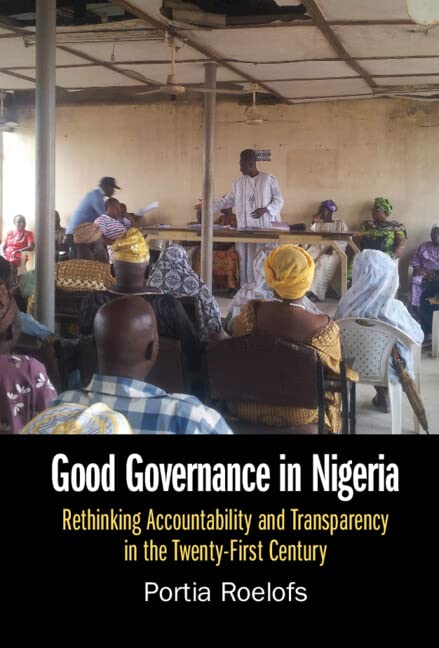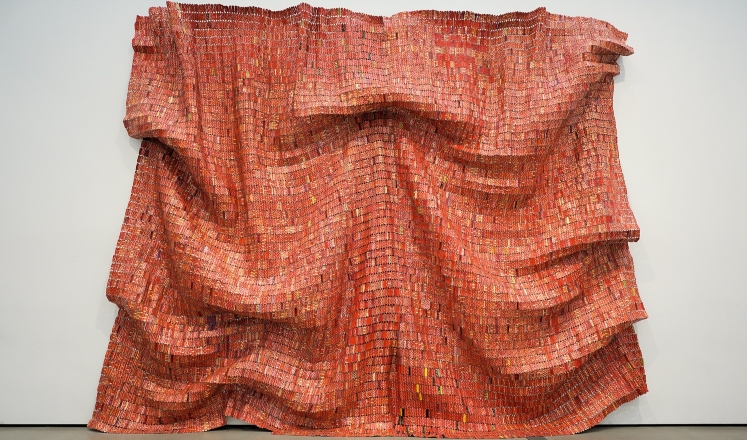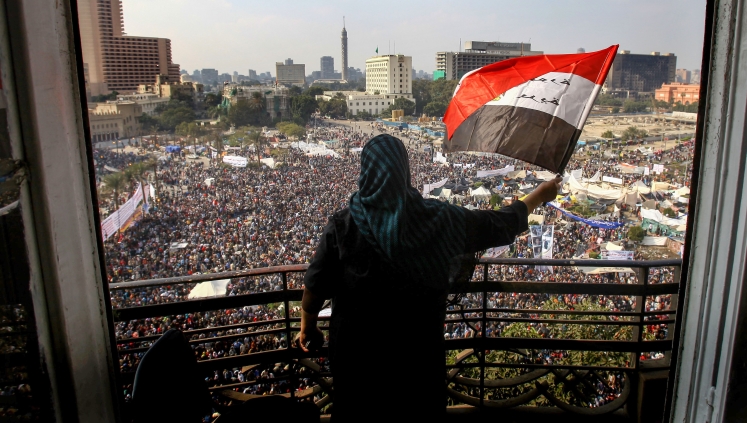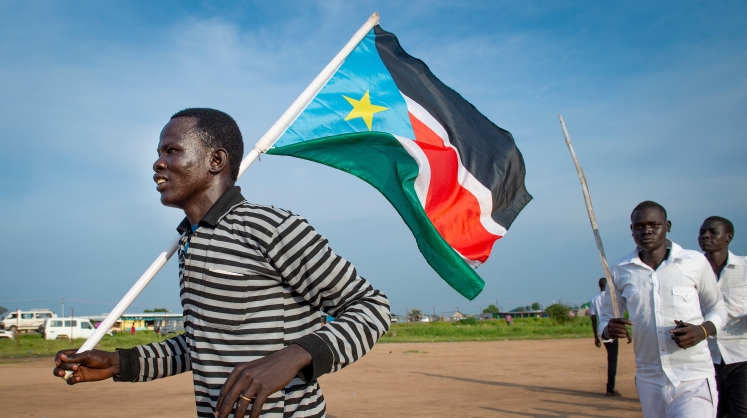In Good Governance in Nigeria: Rethinking Accountability and Transparency in the Twenty-First Century, Portia Roelofs critiques conventional Western ideas of “good governance” imposed in Africa, and specifically Nigeria, through fieldwork and historical analysis. Stephanie Wanga finds the book a grounded and nuanced argument for alternative, locally shaped and socially embedded models of governance.

Good governance: a phrase laden with meaning and history. Good governance in Africa? Even more trouble at hand. Colonial and neocolonial projects in Africa have been justified in the name of good governance. However, to assume a sense of foreboding when one hears the phrase “good governance” is also to assume – and even to locate – its meaning in a particular provenance. This is exactly what Portia Roelofs, in her book Good Governance in Nigeria: Rethinking Accountability and Transparency in the Twenty-First Century, wants to trouble.
The author wants to draw out a re-conception of good governance: namely, as conceived of by everyday people rather than, say, the World Bank or other institutions whose projected definitions come with immense repercussions.
Roelofs, a lecturer in politics at King’s College London, has spent time in Nigeria, including undertaking research in the universities of Ibadan and Maiduguri. It is from her fieldwork in Nigeria that she wants to draw out a re-conception of good governance: namely, as conceived of by everyday people rather than, say, the World Bank or other institutions whose projected definitions come with immense repercussions. To do so, this work “places the voices of roadside traders and small-time market leaders alongside those of local government officials, political godfathers and technocrats…[theorising] ‘socially embedded’ good governance.” Using this method, she defends the argument that “power must be socially embedded for it to be accountable”, in opposition to those who cast social embeddedness as sullying politics and leaving room for all the varied forms of corruption that may hinder good governance.
If society and social demands might be seen as an enabler of corruption […] the necessary flip side is that it can also represent a constraint on the actions of those in power.
Indeed, Roelofs extends Peter Ekeh’s erudite analysis (in Colonialism and the Two Publics in Africa) of a “third space” that defies the binaries of political science’s beloved public and private spheres. Ekeh presented a space from which Nigerian (and wider African) politics could be more fruitfully analysed, a space that was “neither absolutely rational-bureaucratic public authority [nor]…patrimonial authority conceived as the personal or individual authority of a Big Man’s private household”. Roelofs presents evidence that “points towards the existence of more social forms of governance which are neither personalistic […] nor ethnic, but speak to a more general sociality”, which provides the basis for the notion of governance that is “both public and yet includes some social elements and the further possibility that this may constitute good governance”. If society and social demands might be seen as an enabler of corruption (something that is not, the author reminds us, a uniquely African problem), the necessary flip side is that it can also represent a constraint on the actions of those in power. In fact, the insistence on detaching the state from its societal embeddedness increases the opacity and unaccountability of the state.
Roelofs’ methodology may be controversial to those devoted to hyper-abstraction, but for those of us who theorise as we live rather than save theory for the books, good governance must always be socially embedded. However, Roelofs is engaging with real biases that run deep in both political theory and development studies, and that have had immense consequences. As she writes, “While personal contact between voters and politicians is pathologized in scholarly analysis of Africa, it is celebrated by political scientists working in Western democracies.” Social-embeddedness has been a kind of dirty word in a lot of the mainstream writing on African politics – it is this entanglement of the political with the social that causes diagnoses such as “the cancer of corruption” and other terms that pathologise African politics every which way.
This is a book that is quite close to me in terms of method, as a person who roots herself primarily in political theory but believes ardently in the ways other methods and sources, including history and fieldwork, must educate political theory. Along with this, the book is supposed to demonstrate “the associated possibilities for decolonising the study of politics”. One might question the extent to which this book rigorously engages this latter goal, but it continues in the tradition of thinkers including Thandika Mkandawire (to whom the book is dedicated) and others like Ndongo Samba Sylla and Leonce Ndikumana.
Roelofs contests the dominant World Bank discourse on good governance that is projected as universally accepted and uncontroversial. She proposes an alternative mode of governance whereby the people decide for themselves the terms of engagement – something that the World Bank has in multiple, egregious ways denied the continent. This very act is noteworthy – the “problem” of African politics has been repeatedly deemed “too embedded in social and material relations”, leading to the oft-cited ills of neopatrimonialism, corruption, etc.
Roelofs is self-conscious of her position as a white woman trying to turn the tables on colonial, trope-filled discourse and asks for thoughts on how such a move might be more conscientiously made.
However, though this goal of challenging what good governance means is named explicitly at the outset, it would have been useful to see the precise ways in which the book operates as a (potentially) decolonial act. Roelofs is self-conscious of her position as a white woman trying to turn the tables on colonial, trope-filled discourse and asks for thoughts on how such a move might be more conscientiously made. Indeed, many have questioned how “Africanists” – often white, often working outside the continent – have positioned themselves at the centre of changing tides in African political discourse. The racial blindspots (or worse) underlying African Studies must be called out alongside those of the financial institutions; the neocolonial project is a concert of efforts.
The author hints at this issue, but often in diplomatic terms. As Robtel Neajai Pailey writes, one needs to “speak into existence the proverbial elephant in the room of development: race”. However, one must balance this move with the recognition that all of us, including white academics, are responsible for taking the decolonial bull by the horns – that one must not shirk responsibility via the false generosity of “making space” for “people of colour”. The hard work of taking responsibility and being responsible must be consciously and explicitly engaged.
Another danger the book sometimes falls into is to play up the narrative of what Africa can teach the world.
Another danger the book sometimes falls into is to play up the narrative of what Africa can teach the world. This viewpoint is problematic in that it may suggest a need to peg the meaningfulness of work done in Africa to its importance for the Big Bad West (and elsewhere). The greater purpose may instead be to unearth meanings that only have value locally, to study Africa for its own sake, and not for the West’s education. The question of where meaning should be focused relates to Toni Morrison’s observations on racism as a distraction. This burden leaves a person desperately trying to prove that they, too, are worthy; that they, too, have important things to show the world, unaware that by that very token they are upholding a particular standard of worthiness.
Despite this, Roelofs’ book serves as both rigorous, extended analysis of the good governance discourse and a worthwhile historical introduction to the troubles that have besieged state-making in Africa. Roelofs keenly dissects several key historical moments in Nigeria to tease out how they theoretically shape contemporary understandings of good governance.
Roelofs’ book serves as both rigorous, extended analysis of the good governance discourse and a worthwhile historical introduction to the troubles that have besieged state-making in Africa.
To this end, she writes about how good governance in Nigeria is often tied to the person (and myth) of Chief Obafemi Awolowo, who, to some, was the best President Nigeria never had. However, there is more to the picture than the “modernising, elite-led, progressive” elements that epitomise notions of good governance in Nigeria and that Awolowo represented. Working through the contested ideas that surround good governance, Roelofs comes up with what she calls the “Lagos model”. This is a homegrown approach, made of a shared set of reference points acting as a yardstick against which governance is evaluated. Roelofs names the reference points as “an epistemic claim to enlightened leadership, a social claim to being embedded in one’s constituency and a material claim about the sharing of resources”. Roelofs shows that the ideas of good governance grounded in epistemic superiority were in tension with more populist visions that emphasised the need for satisfying short-term economic desires and connecting with leaders. From this dialectic “a full and rounded picture of legitimate leadership as containing epistemic, social and material aspects” emerges. The struggle to balance each of these three aspects is what produces good governance, and the gaps in managing the give and take across the three is what gives various kinds of actors, nefarious and otherwise, entry to “fix” what appears broken.
Overall, the book is accessible and unpretentious, even while quite history-heavy. Though it may lack the poetry and passion of a Mudimbe or Mbembe, its appeal to democratise understandings of good governance demands the reader’s engagement reckon. It is a refreshingly democratic take on what it means to govern well, by rooting the definition in what everyday people in a specific context truly seek.
Note: This post gives the views of the author, and not the position of the LSE Review of Books blog, or of the London School of Economics and Political Science.
Image credit: Tolu Owoeye on Shutterstock.







